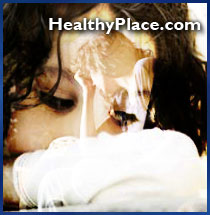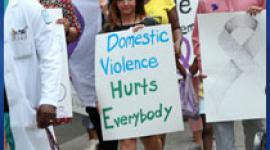Child Abuse and Adult Depression: The Harsh Reality

Child abuse and adult depression are related. Find out how sexual abuse as a child can lead to adult depression.
In the past ten years, research on depression has focused on the levels of physical and sexual abuse suffered by women in the United States. The recognition of the severity of this issue, in terms of its impact on both the lives of the abuse victims and on public health matters as a whole, cannot be understated. Various studies have established that more than one-fourth of women have experienced sexual abuse as a child and that roughly fifteen percent of respondents indicated that they had been raped at some point.
Statistically, women are ten times more likely to experience such abuse than their male counterparts.
Given the stark truth of those figures, medical experts wondered about the possible correlation between exposure to sexual and physical abuse during childhood and/or adolescence and the onset of clinical depression as an adult.
While women are believed to experience depression associated with childhood abuse twice as often as men, no risk factors could account for the difference between the genders. In a study performed by researchers from Harvard Medical School and the Brigham and Women's Hospital, this hypothesis was put to the test.
As part of a larger survey that was focused on the interrelationship between major depression and ovarian function, researchers submitted a questionnaire to 907 women between the ages of 36 and 45, of whom 732 responded. The group was chosen randomly from the greater Boston area over a two-year period. Utilizing accepted clinical tools to identify individuals who could be classified as having the disorder, the team then followed up with a secondary survey dealing specifically with exposure to violent acts.
The data that were obtained in the responses of the women brought home how severe this problem is: one out of two women indicated that they had feared or been a victim of some violent act, sexual or physical, during their early years. This same group also showed double the risk of developing depressive disorders when compared to the control group who had not been victimized. In reviewing the information, the researchers did note that in studies of this sort, some erroneous reporting by the subjects is possible. However, when compared to other studies dealing just with the exposure to personal violence, the findings were consistent as to the prevalence of those types of acts.
Clearly, the findings in this study support the conclusion that a link exists between abuse in early life and the onset of depression in later years. Further research is certainly warranted in this area, as is added attention by health care professionals to screening individuals at risk for these kinds of mental conditions due to a history of exposure to violence. It is past time to remove the stigma that has shrouded those who have suffered and to help them to heal, physically and mentally.
Source:
Wise, L., Zierler, S., Krieger, N., Harlow, B. (Sept. 15, 2001). Adult onset of major depressive disorder in relation to early life violent victimisation: A case-control study. The Lancet, 358(9285), 881-887.
For the most comprehensive information about Depression and Treatment, visit our Depression Community Center at HealthyPlace.com.
next: Child Abuse - The Hidden Bruises
~ all abuse library articles
APA Reference
Gluck, S.
(2008, December 7). Child Abuse and Adult Depression: The Harsh Reality, HealthyPlace. Retrieved
on 2026, March 4 from https://www.healthyplace.com/abuse/articles/child-abuse-adult-depression



